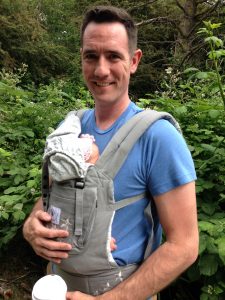In A Private Universe, Heather’s challenges come from a number of places:
- Her brain’s attempt to integrate correct information from differing topics (see: Heather’s reference to analemmas in her description of orbits)
- Integrating learned conceptual knowledge with observed phenomena (seasonal differences caused by proximity to the sun makes sense when we think about our experience with proximity to a heat source)
- Her own best guesses at information she has not yet learned.
Heather’s misconceptions tend to be around phenomena she can’t observe. As Driver et al (1985) states, “some elements in the structure of a scientific theory do not correspond to direct perceptions” (p. 5). Because of this, Heather must assimilate knowledge of her perceived environment with the theoretical or unobservable. The demonstrations her teacher led with the model of the solar system were helping to correct her understanding. Posner et al (1982) theorized that to change a misconception, a person must: be dissatisfied with current conceptions, have the ability to understand a new conception, have an initially plausible new conception, and the new conception must be seen as means to open up new learning. Heather’s old thoughts had a stickiness to them – whenever Heather was questioned beyond a point of her comfort zone, she would return to her old explanations. When it came to her description of the seasons, it sounded like she was on the right track, but misconceptions revealed themselves when she was questioned. Chi (2005) would point out that Heather was mis-categorizing an ‘emergent’ process as a ‘direct’ process. Her ideas of direct and indirect light seemed to be based on her observed notions of reflection. The observed direct process was so powerful in her thinking that she was able to ignore the fact there is almost nothing in space for the sun’s light to reflect off to ‘bounce’ back at Earth.
As a teacher, I remain an optimist about my student’s ability to adapt to new ways of thinking. For Heather, I hope that, as she integrates correct information into her understanding, it will replace misconceptions. It seems to me that the deeper her inquiry and the more frequent her exposure to the correct information, the more likely Heather is to rewire her brain away from the misconceptions she holds (though maybe that is my own deeply held misconception!). While I was watching the video and listening to all the Harvard grads explain their flawed view of the changing seasons, I found myself shaking my head and feeling quite smug. Later, I reflected on Heather’s interview and remembered how her improved explanations fell to pieces when she was questioned and probed deeper. As an experiment, I began asking myself deeper questions about my own understanding of the seasons, and found it didn’t take long until I was out of my depth. The fact is, there is a point at which every person’s understanding on a given topic comes to its limit. Like the signs on ancient maps, ‘beyond this place there be dragons’, it is imagination, educated guesses, and misconceptions that live in that place beyond our understanding.
References
Chi, M. T. H. (2005). Commonsense conceptions of emergent processes: Why some misconceptions are robust. Journal of the Learning Sciences, 14(2), 161-199. doi:10.1207/s15327809jls1402_1
Driver, R., Guesne, E., & Tiberghien, A. (1985). Children’s ideas and the learning of science. Children’s ideas in science, 1-9. Retrieved from: https://www.questia.com/read/118893479/children-s-ideas-in-science
Posner, G. J., Strike, K. A., Hewson, P. W. and Gertzog, W. A. (1982). Accommodation of ascientific conception: Toward a theory of conceptual change. Sci. Ed., 66: 211–227. doi: 10.1002/sce.373066020. Retrieved from: http://onlinelibrary.wiley.com/doi/10.1002/sce.3730660207/full
Schneps, M. H., Sadler, P. M., Woll, S., & Crouse, L. (1989). A Private universe. S. Burlington, VT: Annenberg Media.

